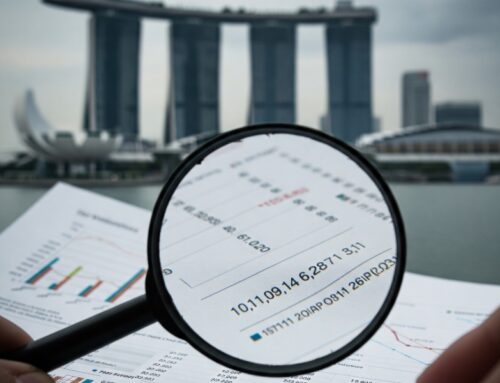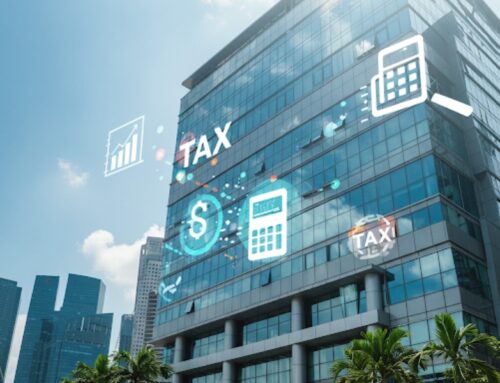Singapore is a very attractive place to incorporate a company as it has very low corporate taxes and has various tax incentives to attract and retain global companies and investments. Effective tax rates in Singapore are one of the lowest in the world. Here are the features and details all companies should know about Singapore’s corporate tax.
Income tax filing deadline
The deadline for corporate tax e-filing is 30th November 2020. Do note that moving forward there will no longer be any hard copy filing for corporate tax. The company will need to file either Form C or Form C-S. Form C-S is a simplified version of Form C. If the company qualifies, it can file Form C-S.
Qualifying conditions to file Form C-S
- The company must be incorporated in Singapore;
- The company must have an annual revenue of $5 million or below
- The company only derives income taxable at the prevailing corporate tax rate of 17%; and
- The company is not claiming any of the following in the YA:
- Carry-back of Current Year Capital Allowances/ Losses
- Group Relief
- Investment Allowance
- Foreign Tax Credit and Tax Deducted at Source
From YA 2020, a dormant company is not required to complete the Form for Reporting Related Party Transactions, notwithstanding the value of the company’s related party transactions disclosed in the financial statements for the financial period exceeds S$15 million. Therefore, dormant companies which are qualified to file Form C-S can continue to use Form C-S.
Basis period
In Singapore, corporate tax is assessed on a preceding year basis. For example, Year of Assessment 2020 (YA2020) refers to the financial period that ended in 2019.
Single-tier corporate tax system
Singapore has a single-tier corporate tax system. If corporate taxes are paid by the company, dividends paid out to shareholders are not subject to taxes. In short, the same dollar cannot be taxed more than once.
No capital gains tax
There is no tax on capital gains in Singapore. Some common examples of capital gains include gains on the sale of fixed assets.
Flat corporate tax rate
Singapore has a flat corporate tax rate of 17%. This corporate tax rate had been progressively lowered over the years to this rate of 17% currently. The effective tax rate is lower when we factor in tax incentives, tax exemptions and depreciation.
Tax exemptions and tax incentives
From YA2020 onwards, there are tax exemptions for newly incorporated companies in the first 3 financial years.
There is a 75% exemption on the first SGD$100,000 of chargeable income if the company meets the following criteria:
– it is incorporated in Singapore; and
– it is a tax resident of Singapore; and
– it has no more than 20 shareholders of which at least one shareholder holds at least 10% of the company shares.
There is a further 50% exemption on the next SGD$100,000 of normal chargeable income.
From YA2020 onwards, there are tax exemptions for qualifying companies. (For those companies which are not startups, this is the applicable tax exemption scheme)
There is a 75% exemption on the first SGD$10,000 of chargeable income
There is a further 50% exemption on the next SGD$190,000 of normal chargeable income.
Effective corporate tax rate
For newly incorporated companies (1st 3 years)
SGD$0 – SGD$100,000 of taxable income: 4.25% ($100,000 x 0.25 x 0.17)
SGD$100,001 – SGD$200,000 of taxable income: 8.5% ($100,000 x 0.5 x 0.17)
More than SGD$200,001: 17%
For companies after their 1st 3 financial years
SGD$0 – SGD$10,000 of taxable income: 4.25% ($100,000 x 0.25 x 0.17)
SGD$10,001 – SGD$200,000 of taxable income: 8.5% ($100,000 x 0.5 x 0.17)
More than SGD$200,001: 17%
Deduction of expenses incurred before commencement of business
Only revenue expenses incurred after commencing business are tax-deductible. Revenue expenses incurred one year before the first day on the financial year in which the company earns its first dollar of business receipt will be tax-deductible.
Example:
Company A was incorporated on 1 Jul 2017 and has a Dec year-end. Assuming it earned its first dollar of business receipt on 1 Sep 2019 (relates to YA 2020), the revenue expenses incurred during the period 1 Jan 2018 to 31 Dec 2018 (i.e. one year before 1 Jan 2019, which is the first day of the financial year in which your company earned its first dollar) will also be tax-deductible in YA 2020.
If you are looking for assistance with corporate tax filing, do contact accounts@singaporesecretaryservices.com. Our company provides corporate tax filing services.
When in doubt, seek legal advice or consult an experienced ACRA Filing Agent.
Yours Sincerely,
The editorial team at Singapore Secretary Services
For more useful articles and videos, visit the Singapore Secretary Services resource page.
If you would like to submit a question or would like us to do an article on certain topics, please email us at info@singaporesecretaryservices.com.
Related articles:
What is Estimated Chargeable Income (ECI)
Important compliance requirements for Singapore companies
Tax obligations before striking off a company in Singapore
How Budget 2020 will affect businesses in Singapore
Common Tax Reliefs that will help to reduce the tax bill for Companies
Common Tax Reliefs that will help to reduce the tax bill for New Start-Up Companies
Advantages of filing ECI (Estimated Chargeable Income) early
Do I need to pay corporate tax on income that is derived outside of Singapore?
What is Estimated Chargeable Income (ECI) and when does it need to be filed?







[…] A guide to Corporate Tax in Singapore […]
[…] A guide to Corporate Tax in Singapore […]